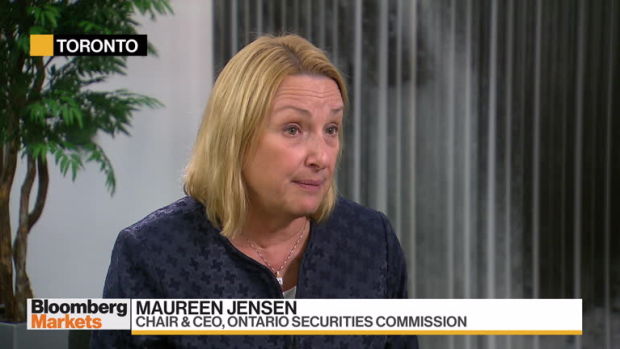Jun 21, 2018
CSA targets hidden fees, more suitability with new regulations

Securities regulators are ready to roll out a united set of changes targeting hidden fees and improved transparency in the advisor-client relationship.
The Canadian Securities Administration published two notices on Thursday based on consultations with the Ontario Securities Commission and other provincial bodies.
“What the industry has done is transitioned from actually being stock sales people to calling themselves advisors,” OSC executive chair and CEO Maureen Jensen told BNN Bloomberg on Thursday. “In an advisory relationship, you have to go beyond just suitability. I would say that this is going to be a difficult transition.”
“However, what we’ve done is we’ve opted to move the rules forward with clear statements about their obligations to their clients and clear guidance on how to get there.”
The CSA, which is the umbrella organization for the country’s provincial securities regulators, is targeting deferred sales charges.
“We are going to prohibit DSCs and also the payment of an embedded fee on a discount platform,” Jensen said, “which means: If you don’t get any advice, you don’t pay any advisory fee.”
The other focus of the CSA’s new regulations took aim at ensuring advisors are always working in their clients’ best interests, including a new focus on the suitability of a client’s investments not only at the time of purchase, but throughout the investment’s history.
“The OSC, together with the rest of the CSA is introducing a harmonized standard to improve investor protection,” Jensen said. “We basically are changing the rules to ensure that client interests are paramount in the advisor-client relationship.”
“Many do have the client’s best interests at heart, but the legal protection and the rules actually state that they have to provide you an investment that is suitable and we’re seeing a range of practice around that.”
Jensen also issued a warning on alternative mortgage lending in her discussion with BNN Bloomberg, telling investors to be wary of handing money over to speculators in hopes of cashing in on Canada’s hot housing markets.
“You have to know who you’re investing with. People can raise capital to build a condo and they might not have experience behind them,” she said.
“People are being approached, saying: ‘Come invest with us. This is going to be a great new development. You’re going to make money. But in the mean[time] you’ll make eight per cent.’ If people put their retirement money in there and then that project doesn’t move forward, they will lose that money and they will lose their eight per cent.”









